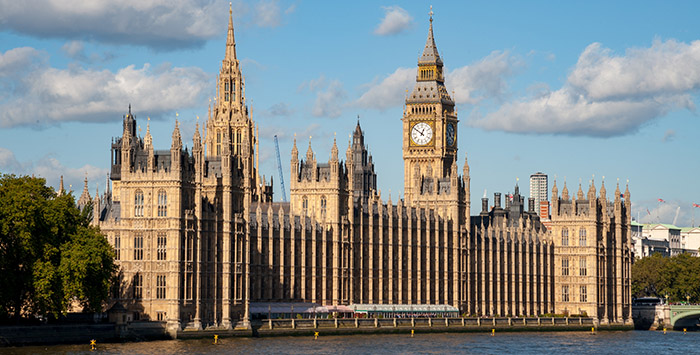The Agriculture Bill has made it to the next stage of the legislative process, after MPs rejected an amendment on import standards from Labour leader Jeremy Corbyn.
The Bill, introduced on January 16, had its Second Reading in the Commons this morning. It passed after MPs voted by 320 to 206 against the amendment that sought to decline the Second Reading because the Bill ‘fails to provide controls on imported agricultural goods, such as chlorinated chicken and hormone treated beef and does not guarantee the environmental, animal welfare and food safety standards which will apply’.
Defra Secretary Theresa Villiers led the Second Reading, explaining how the Bill will help safeguard nature in England and protect our countryside, with the future Environmental Land Management (ELM) scheme already being tested and trialled with farmers in many parts of the country.
The Bill will see farmers rewarded with public money for public goods, such as cleaner air and water or improved animal welfare standards, with direct payments being phased out over seven years from 2021. Defra said the policy would also help to boost productivity and maximise the potential of land for sustainable food production.
While industry organisations have generally welcomed the Bill, and the greater focus on food production than in the original published by Michael Gove in 2018, widespread concerns have been expressed over the lack of regulatory measures in it to prevent imports of food produced to standards outlawed in the UK.
Mrs Villiers said: “Today is the first working day after our historic exit from the EU and this Bill will enable us to seize the one of the most important opportunities from being an independent nation – the freedom to write our own rules about how we farm and manage our land.
“For farmers, it will signal that the Common Agricultural Policy is on the way out, to be replaced by a better system of public money for public goods. I look forward to working with parliamentary colleagues to progress this Bill and write our new agricultural legislation into law.”
The Bill now goes to Committee Stage, with Report Stage and Third Reading following this, before transferring to the House of Lords for further scrutiny.
You can read more about the Bill here.
The NPA’s Ed Barker has put together a detailed briefing on the era-defining Agriculture Bill, published earlier this month.
The document goes through the sections of the Bill that are relevant to the pig sector, highlighting the points the NPA welcomes and supports, and areas that we feel need to be changed or included.
You can view the briefing, which is being sent to MPs, HERE




